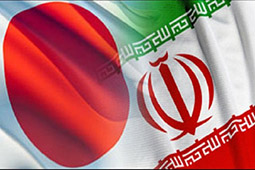
Japan Will Resume Iran Crude Purchases in Jan.


"We aim to lift as much as possible over January-March to keep our hope for the next period," Takashi Tsukioka said.
Japan is one of Iran’s largest oil importers, but it is also the United States’ staunchest ally in Asia—and the combination of the two has not worked to Tokyo’s advantage.
Even though the sanction waivers were issued last month, Japanese refiners—like their counterparts in South Korea—have steered clear of Iranian crude so far because there was not enough clarity about tanker insurance, S&P Global Platts notes.
Now, they will have three months to stock up on cheap Iranian oil before the waivers expire.
The Trump administration has made it clear the ultimate goal of the sanctions was to bring Iranian oil exports down to zero, which puts a question mark over any extensions.
On the other hand, Japan, like China, India, and South Korea, may find it hard to secure alternative supplies in amounts and for prices that would justify them, hence the three-month buying spree Japanese refiners are preparing to embark on.
S&P Global Platts also quoted a US government official who wished to remain anonymous as saying that all transactions involving the purchase of Iranian crude by the eight countries granted waivers had to be completed before May 5, when the waivers expire.
"If someone takes delivery or pays for Iranian crude oil when they do not have an active SRE (significant reduction extension), that transaction would be sanctionable."


Trump weighs using $2 billion in CHIPS Act funding for critical minerals

Codelco cuts 2025 copper forecast after El Teniente mine collapse

Electra converts debt, launches $30M raise to jumpstart stalled cobalt refinery

Barrick’s Reko Diq in line for $410M ADB backing

Abcourt readies Sleeping Giant mill to pour first gold since 2014

Nevada army depot to serve as base for first US strategic minerals stockpile

SQM boosts lithium supply plans as prices flick higher

Viridis unveils 200Mt initial reserve for Brazil rare earth project

Tailings could meet much of US critical mineral demand – study

Kyrgyzstan kicks off underground gold mining at Kumtor

Kyrgyzstan kicks off underground gold mining at Kumtor

KoBold Metals granted lithium exploration rights in Congo

Freeport Indonesia to wrap up Gresik plant repairs by early September

Energy Fuels soars on Vulcan Elements partnership

Northern Dynasty sticks to proposal in battle to lift Pebble mine veto

Giustra-backed mining firm teams up with informal miners in Colombia

Critical Metals signs agreement to supply rare earth to US government-funded facility

China extends rare earth controls to imported material

Galan Lithium proceeds with $13M financing for Argentina project

Kyrgyzstan kicks off underground gold mining at Kumtor

Freeport Indonesia to wrap up Gresik plant repairs by early September

Energy Fuels soars on Vulcan Elements partnership

Northern Dynasty sticks to proposal in battle to lift Pebble mine veto

Giustra-backed mining firm teams up with informal miners in Colombia

Critical Metals signs agreement to supply rare earth to US government-funded facility

China extends rare earth controls to imported material

Galan Lithium proceeds with $13M financing for Argentina project

Silver price touches $39 as market weighs rate cut outlook

















